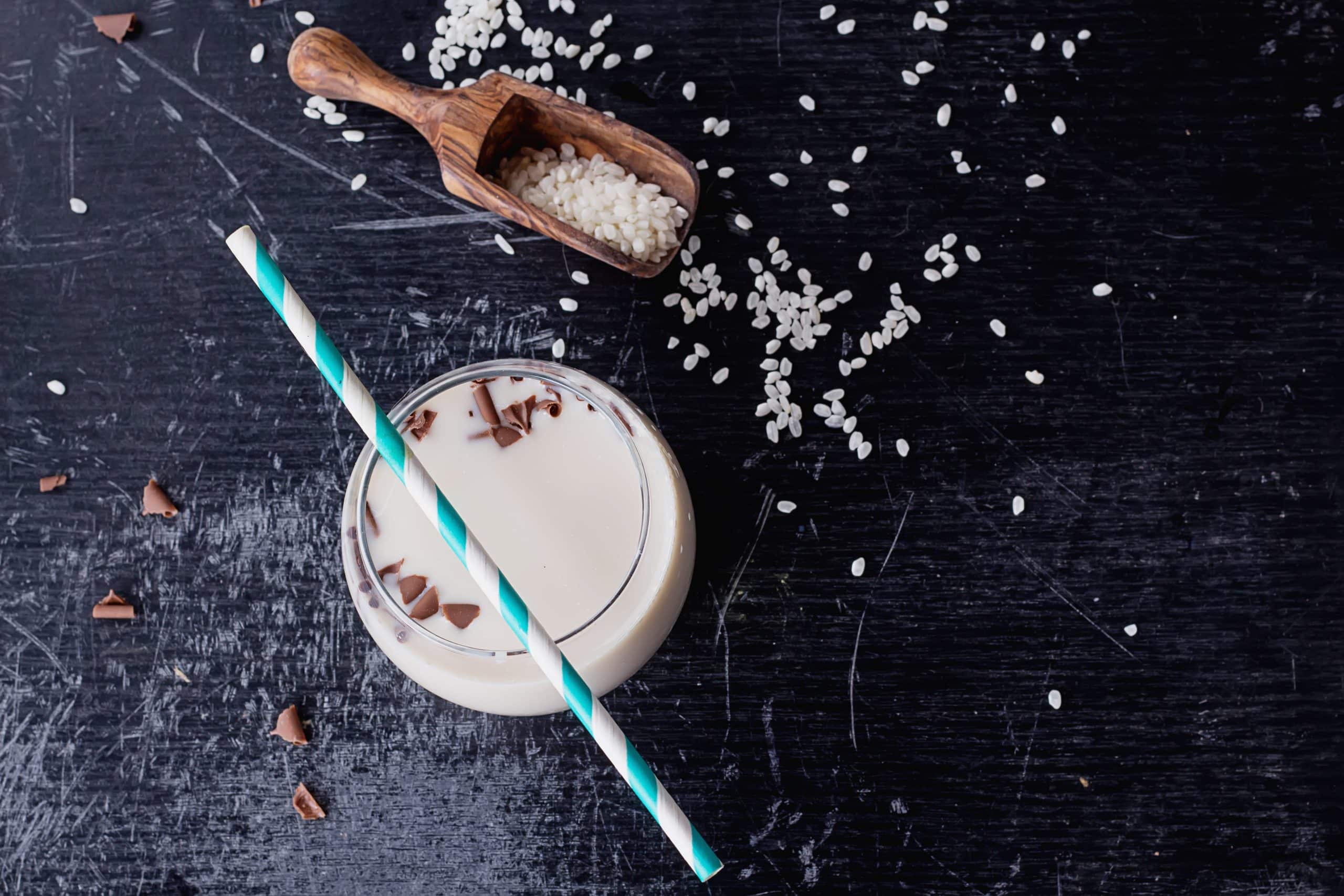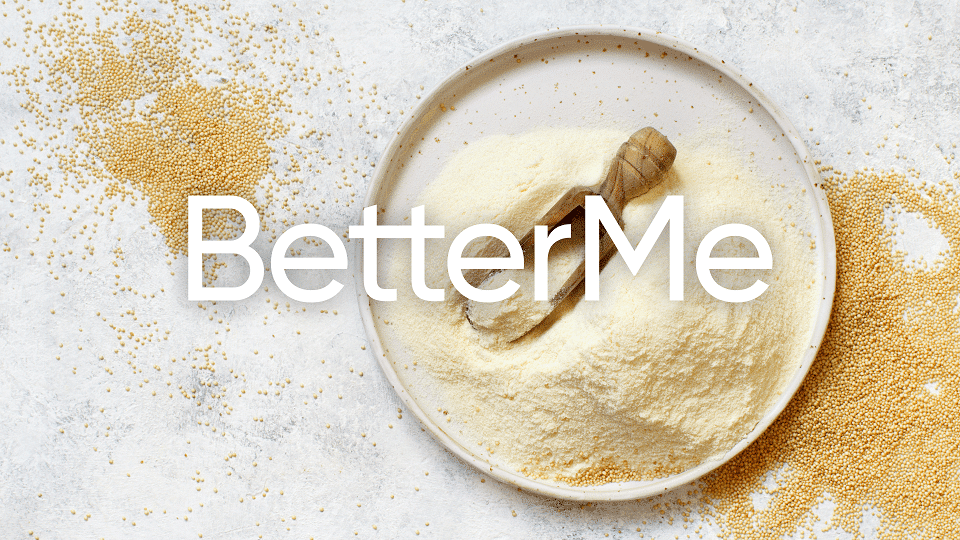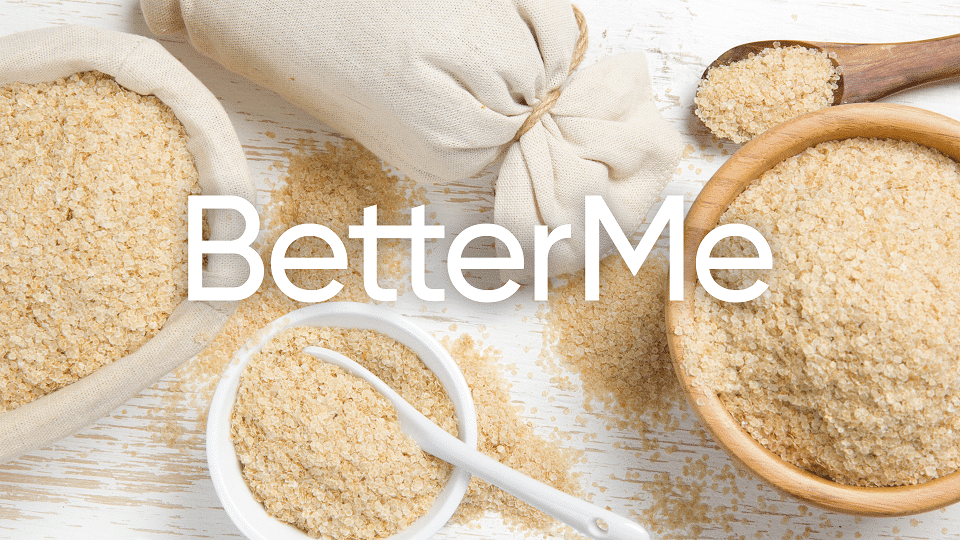Brown rice is a whole grain that is a good source of fiber and protein. It also contains many vitamins and minerals (such as iron, magnesium, and zinc) (17). Brown rice protein powder is a protein isolate that is made from a process called sprouting. This process breaks down the carbohydrates and makes protein that is more easily absorbed by the body. Brown rice protein powder is a popular choice for people who are looking for a natural and vegan-friendly protein powder. It is also a good option for people who are sensitive to whey or casein proteins. Athletes and bodybuilders often use brown rice protein powder as a post-workout shake or meal replacement. It is also sometimes used as a pre-workout supplement. The purpose is to have enough protein which will help to build and repair muscles affected by the workout. In this article, we will look at the benefits of brown rice protein powder and determine whether it is the best protein powder for muscle building.
Get your personalized
meal plan!
Is Brown Rice A Good Source Of Protein?
When many people think of protein, they think of meat, poultry, and fish. However, there are many plant-based sources of protein, including beans, lentils, tofu, and nuts. Brown rice is another good option.
Wondering How Much Protein Is In A Bowl Of Brown Rice?
According to the United States Department of Agriculture (USDA), a cup of cooked brown rice contains about 5.54 grams of protein (3). This is similar to the amount of protein in 100 grams of cooked quinoa (19).
This may not seem like a lot, but when you consider that brown rice is also a good source of other nutrients, it can be a helpful addition to your diet.
Like other plant proteins, brown rice is an incomplete protein, which means that it does not contain all of the essential amino acids (18).
For example, it lacks the amino acid lysine which is important for tissue growth and repair. Does this mean that brown rice protein is not a good choice for athletes and bodybuilders?
No, brown rice protein can still be a useful supplement, especially when combined with other sources of protein.
The protein concentration of brown rice protein powder is 36% essential amino acids and 18% branched-chain amino acids (1).
Essential amino acids are those that the body cannot make itself and must get from food (2). Branched-chain amino acids are important for muscle growth and recovery.
More specifically, brown rice protein powder is a good source of the following amino acids:
- Cysteine – involved in the production of glutathione, a powerful antioxidant (11). Glutathione has been shown to reduce exercise-induced oxidative stress (22).
- Methionine – helps the body to make enzymes and other proteins (15). It is also a component of SAMe, a compound that helps to reduce inflammation (21).
It also contains three branched-chain amino acids (BCAAs):
- Leucine – the most important BCAA for muscle growth. It activates a key protein involved in muscle protein synthesis (6).
- Valine – helps promote tissue growth and repair (26).
- Isoleucine – helps the body recover from exercise and reduces muscular fatigue (13).
In addition, the sprouting process that is used to make brown rice protein powder increases the concentration of certain vitamins and minerals, such as iron, magnesium, and zinc. These play important roles in energy production, muscle growth, and recovery (25).
Read More: Crispy Tofu Recipes That’ll Make You Love This Plant-Based Protein
Is Brown Rice Protein Good For Muscle Building?
Brown rice protein may not be the best protein powder for muscle building, but it’s not a bad choice either. It lacks the amino acid lysine, which is important for muscle growth (14). However, it offers benefits for muscle power and recovery that can be helpful for athletes and bodybuilders.
BACCs (branched-chain amino acids) are important for preventing muscle breakdown during exercise. They may do this by regulating your glycogen stores so that your muscles have the energy they need to perform at their best (9).
When you’re training hard and pushing your muscles to their limits, having adequate glycogen stores is essential for preventing fatigue, preserving muscle and reaching your goals.
Brown rice protein contains all three BACCs (leucine, isoleucine, and valine), making it a good choice for athletes and bodybuilders.
When paired with carbohydrates, leucine has been shown to stimulate muscle protein synthesis (MPS) (6).
MPS is the process your body uses to repair and build muscle tissue. This makes brown rice protein an ideal post-workout recovery shake, as the carbs will replenish your glycogen stores and the protein will help repair your muscles.
So while brown rice protein may not be the best protein powder for increasing muscle mass, it can be a helpful tool for athletes and bodybuilders who are looking to improve their performance and recovery.
If you’ve mustered up the courage to crush your weight loss goal, let Betterme take the sting out of this demanding process. Our app will help you restructure your habits, remold your life and crank up your fitness results!
Combining Brown Rice Protein And Pea Protein
Mixing brown rice protein with pea protein powder is a great way to get all the benefits of both. This is because:
- Rice protein is high in the amino acids, cysteine and methionine, but low in lysine. Pea protein, on the other hand, is low in cysteine and methionine but high in lysine (16). Combining the two offers a superior amino acid profile that is well-rounded and complete.
- Pea protein has a light, fluffy texture that balances out the strong, chalky taste of brown rice protein. This makes for a more enjoyable shake that is still loaded full of nutrients.
- Both brown rice protein and pea protein are vegan-friendly, making this combination ideal for those following a plant-based diet.
6 Reasons To Try Brown Rice Protein Powder
Aside from the muscle-building and recovery benefits, there are a number of other reasons to try brown rice protein powder:
Whole Grain Goodness
Whole grains are a nutrition powerhouse. Unlike their refined counterparts, they contain all three parts of the grain: the bran, germ, and endosperm. This means that they’re loaded with vitamins, minerals, antioxidants, and fiber (12).
Brown rice protein powder is made from whole grain brown rice, making it a nutrient-dense food that is good for your health.
Some of the notable nutrients in brown rice include:
- Healthy fats (monounsaturated and polyunsaturated) – these are important for heart health and maintaining proper hormone levels (7).
- Vitamins B1, B3, and B6 – these play important roles in energy production, metabolism, and nerve function (4).
- Manganese – helps to support bone health and wound healing (10).
- Selenium – a powerful antioxidant that supports immune system function (24).
- Iron – important for oxygen transport and energy production (20).
- Magnesium – necessary for hundreds of biochemical reactions in the body, including muscle contraction, nerve function, and blood sugar regulation (23).
- Zinc – involved in immune function, cell growth, and wound healing (27).
Vegetarian And Vegan Friendly
Vegetarians and vegans often struggle to get enough protein from their diet. This is because many protein-rich foods, such as meat, poultry, and fish, are not part of a plant-based diet.
Brown rice protein powder is a great way for vegetarians and vegans to up their protein intake without having to compromise their ethical or dietary beliefs.
Free From Common Allergens
If you have food allergies or sensitivities, then finding protein powders that don’t contain your triggers can be a challenge.
Brown rice protein powder is free from common allergens, such as dairy, soy, gluten, and nuts. This makes it a great option for those with food allergies or sensitivities.
Low In Calories
If you’re watching your weight or trying to cut body fat, then you’ll want to choose a protein powder that is low in calories.
Brown rice protein powder is a great choice as it is lower in calories than many other protein powders on the market. A scoop of about 32 grams of brown rice protein powder has just 113 calories (5).
Metabolism Booster
The thermic effect of food (TEF) is the number of calories your body burns in order to digest, absorb, and metabolize the food you eat. Some foods have a higher TEF than others, meaning that your body burns more calories digesting them (8).
Brown rice protein powder has a high TEF, which means that it boosts your metabolism and helps you burn more calories.
Low Key Flavor
Flavor is a personal preference, but some people find that brown rice protein powder has a more subtle flavor than other protein powders.
This makes it a great option for those who don’t like the taste of other protein powders or for those who want to add protein to their favorite recipes without changing the taste.
Like most packaged foods, reading the label for flavorings, added sugars, and other ingredients is always a good idea. This will help you choose a brown rice protein powder whose taste hasn’t been altered with additives that you don’t want.
Reasons why BetterMe is a safe bet: a wide range of calorie-blasting workouts, finger-licking recipes, 24/7 support, challenges that’ll keep you on your best game, and that just scratches the surface! Start using our app and watch the magic happen.
Ease Of Use
Eating a bowl of brown rice takes a lot longer than downing a protein shake. That’s where brown rice protein powder comes in.
It’s a quick and easy way to get many of the benefits of brown rice without having to cook it. Just add water or milk (dairy or non-dairy), give it a shake, and you’re good to go.
Add a scoop of brown rice protein powder to your post-workout shake or smoothie, and you’ll be getting a dose of muscle-building protein without having to cook anything.
The same works for savory soups, sauces, and baked goods – just add a scoop of protein powder to boost the protein content without changing the flavor.
The Bottom Line
Brown rice protein powder is a healthy, nutrient-dense, and allergy-friendly option that has a number of benefits for those who want to build muscle, lose weight, or simply improve their overall health.
If you’re looking for a new protein powder to try, then brown rice protein powder is a great option.
DISCLAIMER:
This article is intended for general informational purposes only and does not serve to address individual circumstances. It is not a substitute for professional advice or help and should not be relied on for making any kind of decision-making. Any action taken as a direct or indirect result of the information in this article is entirely at your own risk and is your sole responsibility.
BetterMe, its content staff, and its medical advisors accept no responsibility for inaccuracies, errors, misstatements, inconsistencies, or omissions and specifically disclaim any liability, loss or risk, personal, professional or otherwise, which may be incurred as a consequence, directly or indirectly, of the use and/or application of any content.
You should always seek the advice of your physician or other qualified health provider with any questions you may have regarding a medical condition or your specific situation. Never disregard professional medical advice or delay seeking it because of BetterMe content. If you suspect or think you may have a medical emergency, call your doctor.
SOURCES:
- Amino Acid Composition of an Organic Brown Rice Protein Concentrate and Isolate Compared to Soy and Whey Concentrates and Isolates (2014, mdpi.com)
- Biochemistry, Essential Amino Acids (2022, ncbi.nlm.nih.gov)
- Brown Rice (2019, fdc.nal.usda.gov)
- B Vitamins and the Brain: Mechanisms, Dose and Efficacy—A Review (2016, mdpi.com)
- Calories in Brown Rice Protein Powder (n.d., nutritionix.com)
- Combined ingestion of protein and free leucine with carbohydrate increases postexercise muscle protein synthesis in vivo in male subjects (2005, journals.physiology.org)
- Dietary Fats and Cardiovascular Disease (2017, ahajournals.org)
- Diet induced thermogenesis (2004, biomedcentral.com)
- Effect of BCAA intake during endurance exercises on fatigue substances, muscle damage substances, and energy metabolism substances (2013, ncbi.nlm.nih.gov)
- Essentiality of Manganese for Bone Health: An Overview and Update (2021, journals.sagepub.com)
- Glutathione: Overview of its protective roles, measurement, and biosynthesis (2008, ncbi.nlm.nih.gov)
- Health Benefits of Dietary Whole Grains: An Umbrella Review of Meta-analyses (2016, ncbi.nlm.nih.gov)
- Is Branched-Chain Amino Acids Supplementation an Efficient Nutritional Strategy to Alleviate Skeletal Muscle Damage? A Systematic Review (2017, mdpi.com)
- Medicinal Uses of L-Lysine: Past and Future (2011, researchgate.net)
- Methionine in Proteins: It’s not just for protein initiation anymore (2019, ncbi.nlm.nih.gov)
- Pea proteins oral supplementation promotes muscle thickness gains during resistance training: a double-blind, randomized, Placebo-controlled clinical trial vs. Whey protein (2015, biomedcentral.com)
- Phytochemical Profile of Brown Rice and Its Nutrigenomic Implications (2018, mdpi.com)
- Protein – Which is Best? (2004, ncbi.nlm.nih.gov)
- Quinoa (2019, fdc.nal.usda.gov)
- Review on iron and its importance for human health (2014, ncbi.nlm.nih.gov)
- S‐adenosylmethionine: A metabolite critical to the regulation of autophagy (2020, onlinelibrary.wiley.com)
- The Antioxidant Role of Glutathione and N-Acetyl-Cysteine Supplements and Exercise-Induced Oxidative Stress (2022, tandfonline.com)
- The Importance of Magnesium in Clinical Healthcare (2017, hindawi.com)
- The Role of Selenium in Inflammation and Immunity: From Molecular Mechanisms to Therapeutic Opportunities (2012, ncbi.nlm.nih.gov)
- The Role of Vitamins and Minerals in Energy Metabolism and Well-Being (2007, journals.sagepub.com)
- Valine – an overview (n.d., sciencedirect.com)
- Zinc in Human Health: Effect of Zinc on Immune Cells (2008, ncbi.nlm.nih.gov)













